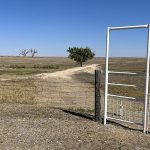 I live and work in a town of just about 10,000 people. Fairfield, Iowa. Wonderful town. Quirky, interesting, small, remote, quiet (except for 35 trains that rumble through daily). County seat for a county with maybe 12-13,000. We’re 4 hours from Chicago, Kansas City and St. Louis. We’re 1 hour from any town of more than 25,000 people. The nearest airport is a commuter airport that’s at least 95 miles away.
I live and work in a town of just about 10,000 people. Fairfield, Iowa. Wonderful town. Quirky, interesting, small, remote, quiet (except for 35 trains that rumble through daily). County seat for a county with maybe 12-13,000. We’re 4 hours from Chicago, Kansas City and St. Louis. We’re 1 hour from any town of more than 25,000 people. The nearest airport is a commuter airport that’s at least 95 miles away.
Our town has survived the farming crisis in the early 80’s, a few recessions and economic downturns, manufacturing layoffs and even grown in property valuations and jobs during this because of A. diversity in our job base. B. some really smart business leaders here; C. some significant changes in the telecommunications industry, nationally and globally.
That’s right. Global changes in the telecom industry, most notably the ending of monopolies here in the US and overseas, has brought hundreds of jobs to little, remote, Fairfield, Iowa. (Caveat: it’s not the only reason Fairfield has survived and grown. But it’s the one I’m most familiar with and it’s the one that can be connected to the most changes in Fairfield.)
Up until the mid-1980’s ATT held a monopoly on local AND long-distance telephone services. The local part of our service was delivered with ‘bell operating companies’. And the long-distance part was handled by Ma Bell, ATT. It’s hard to imagine it these days with all the competition and options for making a long-distance phone call. But that’s the way it was until Judge Greene’s order to ATT to divest itself of its bell operating companies and then to open up its network to…competition, from the likes of Sprint and then MCI and also resellers.
Long story.
Lots of change and turbulence and new competitors with new services.
And that all meant opportunity. And a company here in Fairfield took that opportunity to resell ATT long-distance services. The thinking of the founder was he’d sell it out of …where?…yes, his bedroom/office. Quietly, he’d make enough to support his family. That’s all he wanted.
And as more of his friends and neighbors wanted to do the same with him, seeing the opportunity, he soon had a company of 6 people. He expected to make enough money to buy Australia, as he’d tell us; just the 6 of him. He was a dreamer and look what happened.
I was the 13th employee. Lucky 13. 7 years later there were 700 employees…in a town of 10,000. We had offices opening around the world. I opened our office in Germany. (What a story!) Our network operations center was here in Fairfield, for a worldwide telecommunications company.
(Interesting cultural clash. Our rural electric cooperative had a routine of regular maintenance on the weekends during off-peak hours. But for other parts of the world, and our customers who lived and worked there…these weren’t off-peak hours…)
We were pulling in employees from 2 other states as well as bringing in outside contractors to come work in a little town, far, far away from bright lights and big cities.
The company crashed and burned in bankruptcy discussed in the Wall Street Journal. (Hey, no one’s perfect.)
But all those people who eventually were laid off used their newly acquired skills to populate other companies in the area, either existing companies or startups. There spawned another surge in a new, more diversified, economy for the community.
And during this time, the internet became a force for business. This company was the first and only company at the time to allow for service orders to be entered and provisioned over the internet from the comfort of our independent sales agents’ home offices. (They expected to buy Fiji…)
That’s a huge advantage for attracting sales agents, improving cash-flows from faster conversion of orders and cutting personnel costs from manually entering orders.
And changes again in the telecom arena helped another company start and thrive here. That company was Conference Calls Unlimited. From little Fairfield, remote Fairfield, we competed against national brands and their services using the changes in telecommunications and the opportunities they presented: long-distance calling, toll free calls, toll calls, email, collaboration with web conference services, VOIP, chat, hosted service applications like Basecamp and payment-processing through online merchant accounts. We used 3rd party answering services at the beginning and before that an online answering service that emailed the voicemail as an enclosure.
And then we used blogs and podcasts and YouTube videos to help spread our message. Oh, and websites, too! All made possible by changes in telecommunications.
And we hired great people. Our neighbors and friends and those we knew that delivered great service every day.
And there’s your advantage. It’s our advantage, really, as businesses in rural, smaller, areas. As residents or rural communities we have the added advantage of working side-by-side with our neighbors and friends and maybe even family. That’s a huge factor for commitment, loyalty, dedication, passion. And we have all the advantages of access to a global marketplace through these changes in telecommunications without the high rents, high mortgages, high salaries and high overhead from being located in a larger city.
Not everyone is going to start a ‘telecom’ company. Even fewer will want to run a company of 700 employees 6 years after opening.
But the open infrastructure of telecom now with more and cheaper bandwidth becoming available, more calling services and options, more free hosted applications that allow any startup or small business from ANY location to reach millions in a professional and inexpensive manner is the great playing-field leveler for small business in general and in particular for small business in rural communities.
Get on the telephone. Your world’s waiting for you.
About the Author: Zane Safrit’s passion is small business and the operations’ excellence required to deliver a product that creates word-of-mouth, customer referrals and instills pride in those whose passion created it. He blogs about health care issues each Monday at http://zanesafrit.typepad.com. There on the sidebar is a list of blogs and resources to educate yourself on the health care challenges you face, I face, we all face together. He also writes on small business, word of mouth, marketing, branding, innovation, and failure.
He previously served as CEO of Conference Calls Unlimited.
[Photo of Fairfield Art Walk by Zane Safrit, used by permission.]
- About the Author
- Latest by this Author










